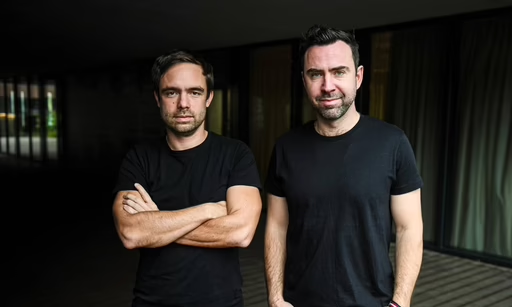As global trade feels the ripple effects of escalating tariff policies—fueled most recently by former President Donald Trump’s declaration of “Liberation Day” with a new round of tariffs—a rising Web3 startup believes it has the tools to streamline tariff tracking in real time.
Meet Watr, a blockchain-powered platform that’s already catching the attention of major institutions like JP Morgan, Citibank, and FEMA. The company’s bold claim? It can track and validate tariffs on commodities before they’re even shipped, cutting down delays and potential fraud in international trade.
While blockchain boasts no shortage of lofty promises, Watr’s approach might just have the credibility to back it up. The company is led by Maryam Ayati, a seasoned commodities expert with leadership experience at Shell, BP, and J.P. Morgan. Ayati previously spearheaded global origination and investment at Shell Trading and was part of the Komgo blockchain initiative, supported by ING and Shell, back in 2018.
A Blockchain-Based Fix for a $20 Trillion Market
Global commodities represent a $20 trillion market—and it’s ripe for disruption. Watr uses blockchain to create traceable digital records for commodities, integrating decentralized IDs for institutions and digital fingerprints for raw materials. The idea is to ensure transparent, pre-trade validation—especially for tariffs and sanctions—before a single transaction is finalized.
“What we’re building is not another token project,” said Ayati in a call. “This is about re-engineering the infrastructure of trust, traceability, and liquidity in real-world trade.”
The platform originally launched with ESG-focused tracking, offering digital “nutrition labels” for carbon emissions and other sustainability data. But with ESG interest cooling off in some markets, Watr is now pivoting toward practical compliance features—like real-time sanctions checks and automated tariff validation.
Satellite-Powered Transparency
According to Ayati, Watr is also working to fuse machine-sourced intelligence with its blockchain tools. This includes satellite imagery, ocean traffic sensors, and open-source data repositories. For example, the platform could detect if a commodity was transferred at sea to avoid tariffs or re-routed to markets with looser regulations.
Some governments outside the West, she claims, are concerned about deceptive trading practices. In these scenarios, traders may falsely declare the destination of goods—claiming shipments are bound for Europe but rerouting them to Asia to pocket more profits. Watr’s solution? Use blockchain to tag and verify commodity origin, so that tariffs are automatically applied—even before payment happens.
“This changes the game. The moment tariffs are due, our system can flag it—well before any deal is finalized,” Ayati added.
Why Watr Might Succeed Where Others Failed
Blockchain in commodities isn’t a new idea. Back in 2017, agricultural exchange The Seam partnered with IBM to trial blockchain for cotton trading transparency. In 2018, the Komgo initiative aimed to digitize letters of credit and trade documents. Yet many of these projects have quietly faded.
Watr could be different. It’s supported by unnamed crypto venture funds and commodity executives, with evidence suggesting several million dollars already raised. And crucially, it’s not starting from scratch. Institutions are already using Watr’s tools for validation, and the startup just announced it’s migrating to the Avalanche blockchain, known for its high scalability and ability to create “sovereign chains” tailored for industry-specific needs.
Keld Van Schreven, founding partner at crypto VC firm KR1, offered cautious optimism: “Web3 startups have made bold supply chain promises before, but if Watr can truly deliver scalable pre-trade tariff validation on-chain—especially with heavyweight backing—it could represent a real breakthrough.”
He also pointed out that choosing Avalanche signals that Watr is thinking seriously about scaling from day one. Still, he emphasized that the real test will be widespread adoption and transaction volume.













